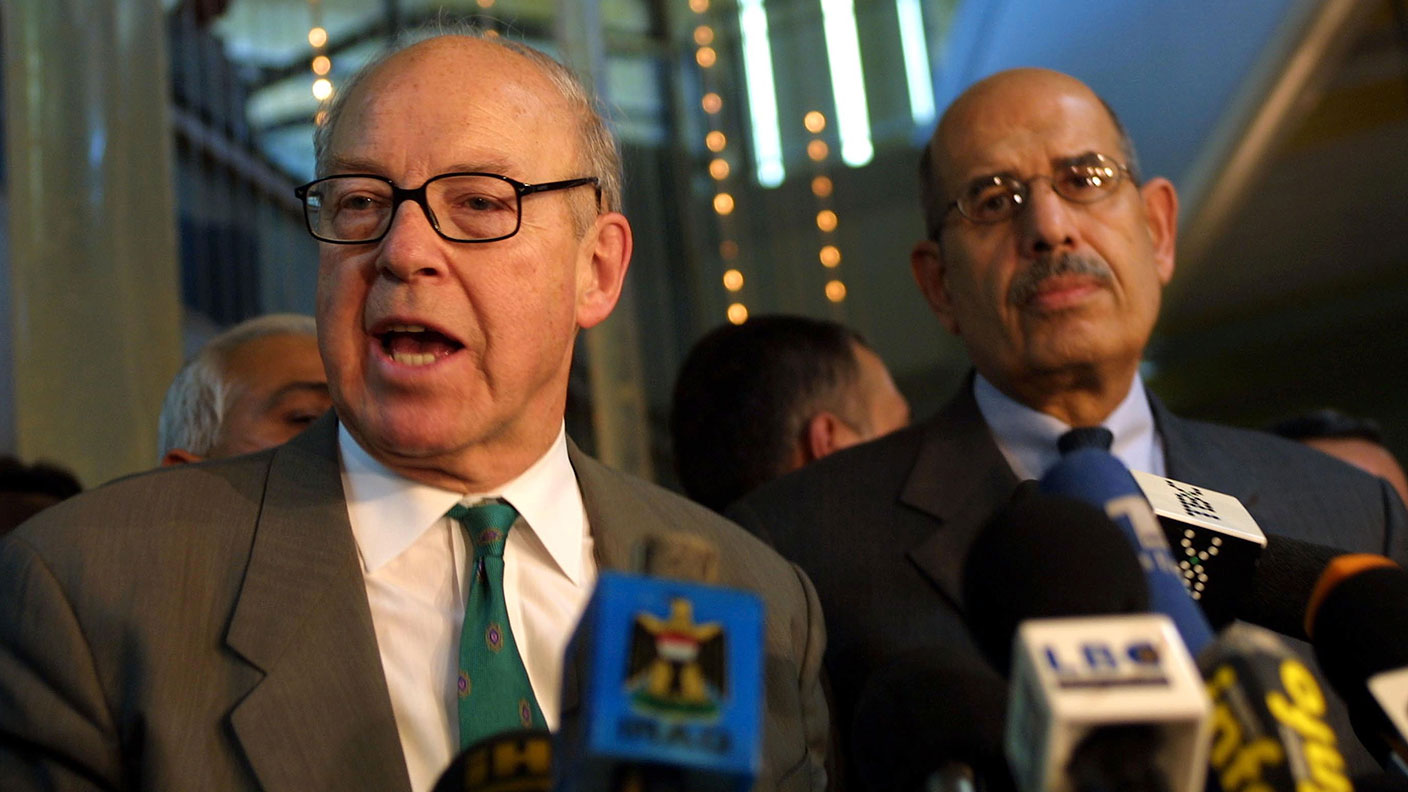
Get the latest financial news, insights and expert analysis from our award-winning MoneyWeek team, to help you understand what really matters when it comes to your finances.
You are now subscribed
Your newsletter sign-up was successful
Want to add more newsletters?

Twice daily
MoneyWeek
Get the latest financial news, insights and expert analysis from our award-winning MoneyWeek team, to help you understand what really matters when it comes to your finances.

Four times a week
Look After My Bills
Sign up to our free money-saving newsletter, filled with the latest news and expert advice to help you find the best tips and deals for managing your bills. Start saving today!
After the 1990-91 Gulf War, evidence emerged that Iraq had been pursuing a programme of biological warfare. But the UN Special Commission which was charged with disarming Iraq found no evidence that it had continued after the war. Nevertheless, Saddam Hussein became something of an obsession with the US. In 1998, it passed the “Iraq Liberation Act”, and removing him became official policy.
The events of 11 September 2001 would provide a catalyst for action (despite Iraq having nothing to do with them), and in January 2002, US president George W Bush announced that Iraq, along with Iran and North Korea, formed an "axis of evil" – state sponsors of terrorism hell bent on acquiring weapons of mass destruction (WMD). He singled out Iraq in particular, claiming it was actively plotting to build stockpiles of anthrax, nerve gas and nuclear weapons.
As the year wore on, Bush ramped up the rhetoric, egged on by Tony Blair. And it soon became clear that a new invasion was on the cards. In September 2002, Bush delivered a speech to the UN, calling on it to enforce its resolutions on Iraq, hinting that if it didn't, the US would do it for them. On 8 November, the UN Security Council passed resolution 1441, declaring Iraq to be in breach of its obligations, and gave it a "final opportunity" to comply.
MoneyWeek
Subscribe to MoneyWeek today and get your first six magazine issues absolutely FREE

Sign up to Money Morning
Don't miss the latest investment and personal finances news, market analysis, plus money-saving tips with our free twice-daily newsletter
Don't miss the latest investment and personal finances news, market analysis, plus money-saving tips with our free twice-daily newsletter
And on 18 November 2002, Hans Blix and a party of weapons inspectors from the UN and the International Atomic Energy Agency arrived in Iraq to find out the truth. From then until March 2003, they made over 900 inspections at 500 sites. Iraq co-operated in allowing them access to the suspected weapons site, but they were less co-operative when asked about the programmes themselves, said Blix. But nevertheless, the inspectors found no evidence of weapons of mass destruction.
On 19 March, the US, aided enthusiastically by the UK, invaded. Many critics believe that had the weapons inspectors been given time to do their job properly, and not had to leave in a hurry before the bombs began dropping, they would have been able to prove that Iraq had no WMDs.
Get the latest financial news, insights and expert analysis from our award-winning MoneyWeek team, to help you understand what really matters when it comes to your finances.

-
 Should you buy an active ETF?
Should you buy an active ETF?ETFs are often mischaracterised as passive products, but they can be a convenient way to add active management to your portfolio
-
 Power up your pension before 5 April – easy ways to save before the tax year end
Power up your pension before 5 April – easy ways to save before the tax year endWith the end of the tax year looming, pension savers currently have a window to review and maximise what’s going into their retirement funds – we look at how
-
 31 August 1957: the Federation of Malaya declares independence from the UK
31 August 1957: the Federation of Malaya declares independence from the UKFeatures On this day in 1957, after ten years of preparation, the Federation of Malaya became an independent nation.
-
 13 April 1960: the first satellite navigation system is launched
13 April 1960: the first satellite navigation system is launchedFeatures On this day in 1960, Nasa sent the Transit 1B satellite into orbit to provide positioning for the US Navy’s fleet of Polaris ballistic missile submarines.
-
 9 April 1838: National Gallery opens in Trafalgar Square
9 April 1838: National Gallery opens in Trafalgar SquareFeatures On this day in 1838, William Wilkins’ new National Gallery building in Trafalgar Square opened to the public.
-
3 March 1962: British Antarctic Territory is created
Features On this day in 1962, Britain formed the British Antarctic Territory administered from the Falkland Islands.
-
10 March 2000: the dotcom bubble peaks
Features Tech mania fanned by the dawning of the internet age inflated the dotcom bubble to maximum extent, on this day in 2000.
-
9 March 1776: Adam Smith publishes 'The Wealth of Nations'
Features On this day in 1776, Adam Smith, the “father of modern economics”, published his hugely influential book The Wealth of Nations.
-
 8 March 1817: the New York Stock Exchange is formed
8 March 1817: the New York Stock Exchange is formedFeatures On this day in 1817, a group of brokers moved out of a New York coffee house to form what would become the biggest stock exchange in the world.
-
7 March 1969: Queen Elizabeth II officially opens the Victoria Line
Features On this day in 1969, Queen Elizabeth II took only her second trip on the tube to officially open the underground’s newest line – the Victoria Line.
